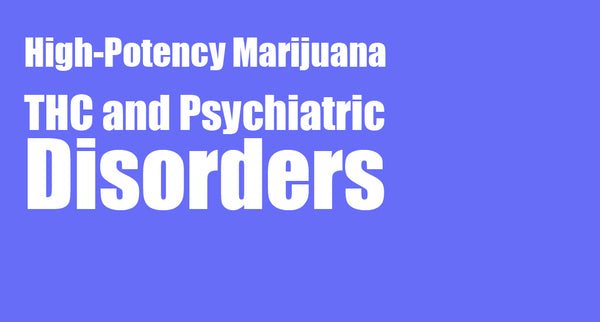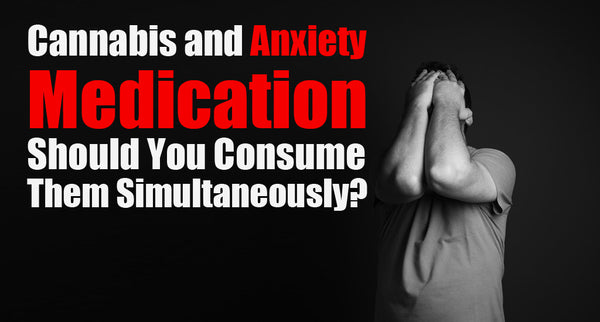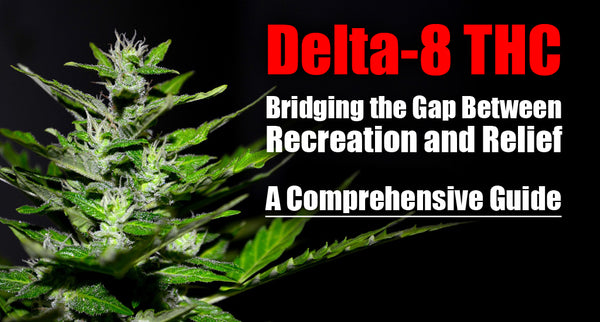
Just In: A New Study on Cannabis Legalization and Psychosis
Cannabis enthusiasts and the curious alike!
We've got some interesting news from the Great White North, specifically Ontario, Canada, where weed has been legal for non-medical use since October 2018. The big question on everyone's mind has been: Does legalizing weed lead to more people having serious mental health issues, like psychosis? You might think that with weed more accessible, there'd be a spike in these cases, but recent studies have some surprising insights.
First off, let's understand what we're talking about. Psychosis isn't just about seeing things that aren't there; it's a serious mental condition where people lose touch with reality. It can include hallucinations, delusions, and severely disorganized thinking. And yeah, there's been a long-standing debate about whether toking up can trigger these conditions, especially in people who are already at risk.
So, researchers in Ontario rolled up their sleeves and sifted through loads of health data from January 2014 to March 2020. They were on the lookout for any changes in how often people were visiting hospitals or clinics for psychosis-related issues since weed became legal. The findings were pretty eye-opening. Despite the initial fears, they didn't find any major increase in health service use or new cases of psychotic disorders in the 17 months following legalization. This was a bit of a relief because it suggested that, at least in the short term, making weed legal didn't make these problems worse.
But here's where it gets a bit tricky. While there wasn't a sudden spike, the data did show a gradual increase in people seeking help for substance-induced psychosis over the years. This means that while legalizing weed didn't cause an immediate crisis, there might be a slow and steady rise in these cases that we need to keep an eye on.
These findings are pretty significant, especially when you consider the ongoing debate about the safety of legalizing cannabis. It's a reminder that we need to look at the big picture and consider the long-term effects of these policies. So, let's dive deeper into what this all means in the next sections.
Deciphering the Long-Term Health Implications of Cannabis Legalization
Let's zoom in on the study's findings and what they mean for us. The researchers used a fancy method called "cross-sectional interrupted time-series analysis." Sounds complex, but it basically means they looked at health data over time to see if there were any significant changes after weed was legalized. And guess what? The data didn't show any big jumps in people needing medical help for psychosis right after legalization. This was a bit of a shocker because, let's be real, a lot of folks were worried that legal weed would lead to a health crisis.
But it wasn't all clear skies and smooth sailing. While the immediate aftermath of legalization seemed pretty chill, the researchers noticed an uptick in cases of substance-induced psychosis over their six-year study period. This raises an important question: could the gradual increase in these cases be linked to more people using weed, or maybe even to the types of weed they're using?
Another interesting twist is how different studies have shown varied results. For example, during the period when weed sales were tightly controlled in Ontario (think fewer stores and limited product types), there wasn't a significant change in emergency room visits for weed-induced psychosis. But things got a bit more complicated when the market opened up more. After restrictions eased and more stores popped up, there was an actual increase in emergency room visits for weed-induced psychosis, especially among young adults who were legally allowed to buy it. This suggests that how weed is sold (like the number of stores and the types of products available) can have a real impact on public health.
These findings are super important for policymakers and public health experts. They suggest that the way weed is legalized and regulated can make a big difference in how it affects our health. If the market is too open and unregulated, it might lead to more health issues. But if it's too tight, well, that could have other problems, like pushing people to buy from unregulated sources. It's a delicate balance, and these studies help shed light on how to strike it right.
Comparing Ontario's Findings with International Trends
Now, let's broaden our view and compare Ontario's experience with what's happening elsewhere. Interestingly, these findings aren't just a Canadian thing. In the United States, where several states have legalized marijuana, similar studies have been done. And guess what? They also didn't find any significant increase in psychosis-related health outcomes after legalization. This includes both diagnoses of psychotic disorders and prescriptions for antipsychotic medications. It's like a pattern is emerging here: legalizing weed doesn't automatically mean more people are going to have psychotic breaks.
But why is this the case? Well, it's complicated. The relationship between weed and mental health isn't straightforward. For starters, people with psychotic illnesses are more likely to use cannabis and other controlled substances. But, and here's a key point, the lifetime incidence of marijuana-induced psychosis is actually pretty rare among people without a prior psychiatric diagnosis. In fact, one study found that fewer than 0.5% of cannabis users ever experienced psychotic symptoms that needed medical intervention. To put that in perspective, that's lower than the rate associated with alcohol.
These findings challenge some of the stereotypes and fears about cannabis legalization. They suggest that while there's definitely a risk for some individuals, especially those with a pre-existing risk of psychosis, for the majority of users, the risk is relatively low. This doesn't mean we should throw caution to the wind, but it does mean that the scare stories about weed causing a massive spike in psychosis might not be as accurate as we thought.
The takeaway here is that context matters. Legalizing weed isn't a one-size-fits-all situation. Each place that's considering legalization needs to look at its own context, including factors like the existing mental health landscape, how healthcare is provided, and the specifics of the legalization model (like age limits, types of products allowed, and where and how they can be sold).
Conclusion
So, what's the big picture takeaway from all of this? First, the doom and gloom predictions about legalizing weed leading to a surge in psychosis cases aren't really holding up under scrutiny. The experiences in Ontario, Canada, and various states in the U.S. are showing us that responsible legalization and regulation might not be as risky as some feared.
However, this doesn't mean we can just relax and assume everything's fine. The gradual increase in substance-induced psychosis cases over time in Ontario is a reminder that we need to stay vigilant. It suggests that long-term monitoring and research are crucial. We need to keep an eye on how changing cannabis laws are affecting our communities, not just in the short term but over years and even decades.
Another key takeaway is the importance of how we legalize and regulate cannabis. The differences in health outcomes between the tightly restricted initial period of legalization and the more open commercialization phase in Ontario highlight the impact of market conditions on public health. This is a valuable lesson for other regions considering legalization: the details of how you do it really matter.
Finally, let's not forget the importance of public education and awareness. With legal weed.



